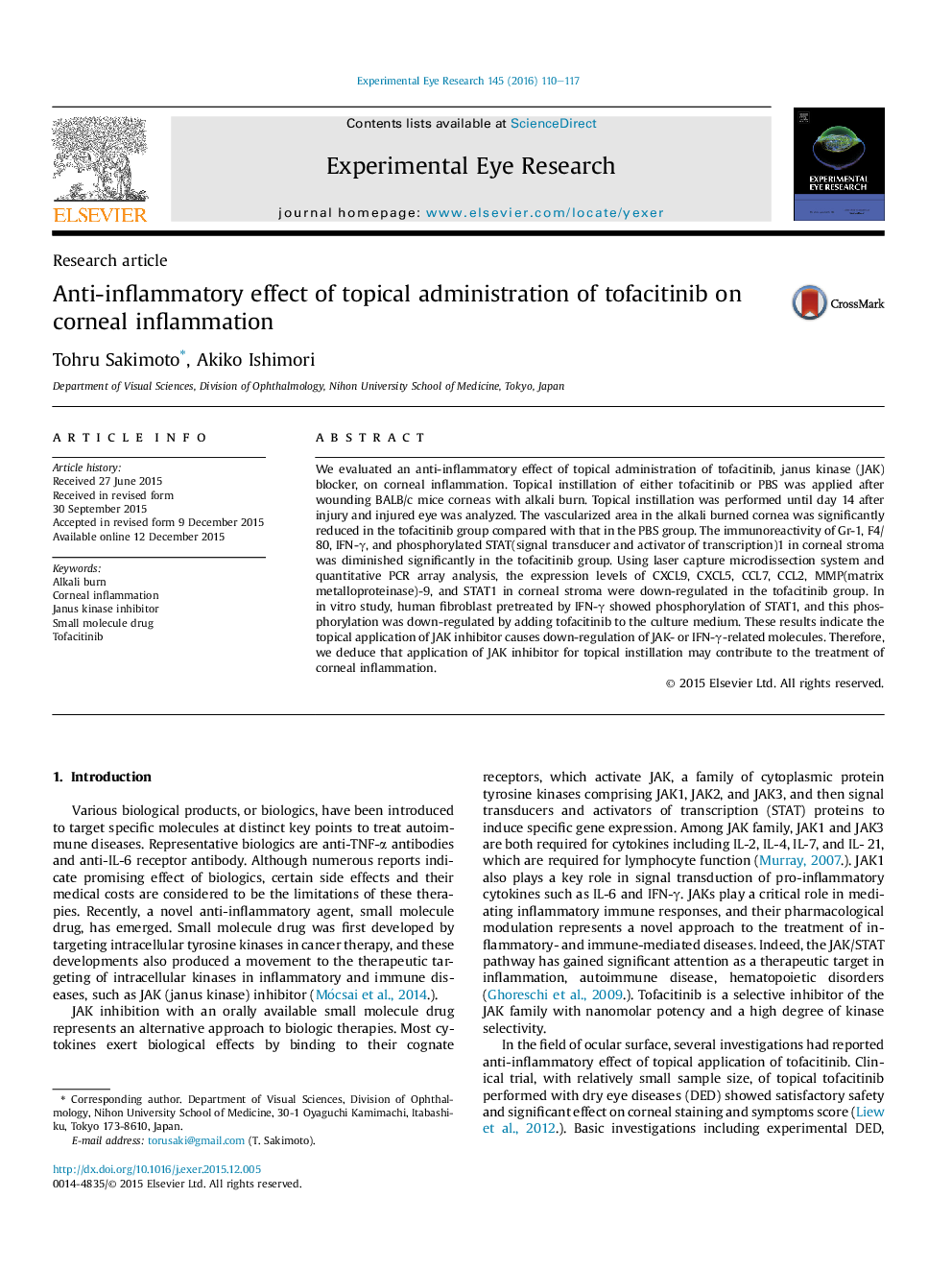| Article ID | Journal | Published Year | Pages | File Type |
|---|---|---|---|---|
| 6196452 | Experimental Eye Research | 2016 | 8 Pages |
â¢Topical instillation of tofacitinib (JAK inhibitor) inhibited corneal neovascularization.â¢Various chemokines and MMP, Th1/IFN-γ related molecules were also down-regulated.â¢Tofacitinib inhibited IFN-γ signal in cultured corneal fibroblast.â¢Blockade of JAK reduced corneal inflammation and neovascularization.
We evaluated an anti-inflammatory effect of topical administration of tofacitinib, janus kinase (JAK) blocker, on corneal inflammation. Topical instillation of either tofacitinib or PBS was applied after wounding BALB/c mice corneas with alkali burn. Topical instillation was performed until day 14 after injury and injured eye was analyzed. The vascularized area in the alkali burned cornea was significantly reduced in the tofacitinib group compared with that in the PBS group. The immunoreactivity of Gr-1, F4/80, IFN-γ, and phosphorylated STAT(signal transducer and activator of transcription)1 in corneal stroma was diminished significantly in the tofacitinib group. Using laser capture microdissection system and quantitative PCR array analysis, the expression levels of CXCL9, CXCL5, CCL7, CCL2, MMP(matrix metalloproteinase)-9, and STAT1 in corneal stroma were down-regulated in the tofacitinib group. In in vitro study, human fibroblast pretreated by IFN-γ showed phosphorylation of STAT1, and this phosphorylation was down-regulated by adding tofacitinib to the culture medium. These results indicate the topical application of JAK inhibitor causes down-regulation of JAK- or IFN-γ-related molecules. Therefore, we deduce that application of JAK inhibitor for topical instillation may contribute to the treatment of corneal inflammation.
